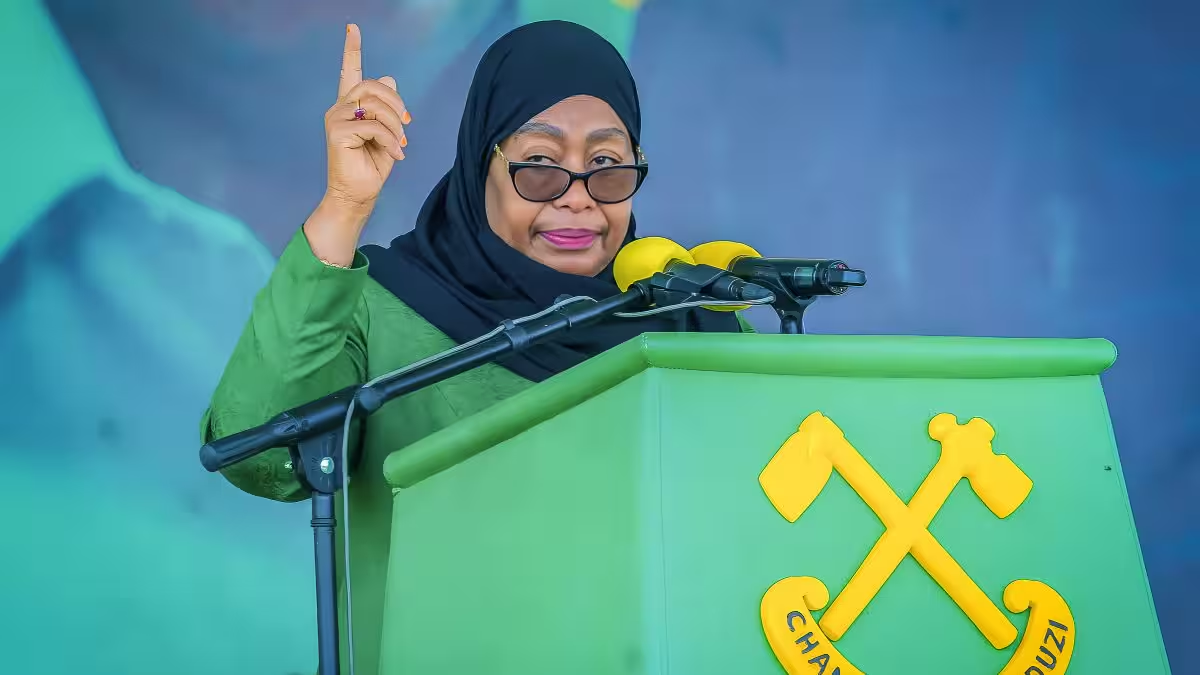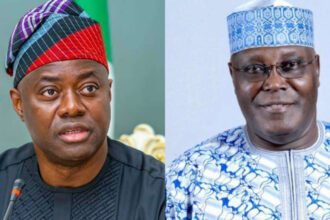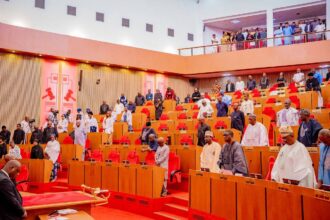
Tanzanian President Samia Suluhu Hassan has secured an overwhelming victory in the country’s presidential election, winning 97.66 percent of the vote, according to official results released by the National Electoral Commission on state television Saturday night.
The landslide win, however, comes against the backdrop of deadly protests, opposition boycotts, and widespread allegations of state repression, raising serious concerns about the credibility of the polls and the future of democracy in the East African nation.
State broadcaster TBC reported that the 65-year-old president would be sworn in for a second term immediately, cementing her control over both the ruling party, Chama Cha Mapinduzi (CCM), and the country’s political establishment.
But as Tanzanians woke up to the news of her victory, the opposition party Chadema and several human rights organizations accused the government of orchestrating one of the bloodiest crackdowns in recent Tanzanian history.
Opposition Alleges Hundreds Killed
Chadema’s spokesperson told AFP that more than 700 people were killed in clashes with security forces during and after the election on Wednesday, October 29. “This was not an election — it was a massacre,” he said. “Our supporters were hunted down, beaten, and shot for demanding their right to vote.”
According to the opposition, the death toll was compiled from hospitals and clinics across the country, though independent verification has been impossible due to a government-imposed internet shutdown and a sweeping ban on foreign journalists.
Security and diplomatic sources in Dar es Salaam confirmed that “hundreds” of people may have died in the unrest, describing the situation as “unprecedented in modern Tanzanian history.”
Violence, Blackouts, and Fear
The election descended into chaos as protesters clashed with police, torched polling stations, and destroyed campaign materials in major cities including Arusha, Mwanza, and Zanzibar. Security forces responded with live ammunition, tear gas, and mass arrests, according to eyewitnesses.
Internet and telecommunications services were suspended nationwide on election day, and a 24-hour curfew was imposed in several regions to curb demonstrations.
A security official, speaking anonymously, described the unrest as “the worst outbreak of violence since independence,” adding that “many soldiers were reluctant to fire on civilians, but the chain of command left little room for dissent.”
Analysts Say Election Was About Power Consolidation
President Hassan’s resounding win came after months of internal strife within the ruling party and rising tensions with military and political elites. Analysts suggest that the election served not only as a democratic exercise but also as a political purge to consolidate her authority.
Since assuming office in 2021 following the sudden death of former president John Magufuli, Hassan has walked a tightrope — balancing Magufuli loyalists within CCM and a restive opposition calling for reform.
“Samia Suluhu’s re-election was never really in doubt,” said Dr. Lillian Mwakaleli, a political analyst at the University of Dar es Salaam. “What was at stake was whether she could eliminate rivals and silence dissent within her ranks. This election achieves that, albeit at a terrible human cost.”
Opposition Silenced and Intimidated
The opposition’s ability to compete was severely hampered. Chadema’s presidential candidate was barred from participating after being arrested and charged with treason weeks before the polls. Other opposition figures were either detained or forced into hiding, while party offices across the country were sealed by police.
Rights groups have accused the government of waging a “campaign of terror” in the weeks leading up to the election, citing kidnappings, arbitrary arrests, and intimidation of activists.
Amnesty International and Human Rights Watch released statements condemning what they described as a “systematic assault on democratic freedoms.”
International Outrage Grows
International reaction has been swift. UN Secretary-General António Guterres said he was “deeply concerned” by reports of violence and mass casualties, urging Tanzanian authorities to “exercise restraint, ensure accountability, and respect human rights.”
The European Union called for an independent investigation into the violence, while the United States expressed alarm over reports of vote manipulation and voter suppression.
“The Tanzanian people deserve to choose their leaders freely and safely,” a U.S. State Department spokesperson said. “We are monitoring the situation closely and will work with regional partners to ensure accountability.”
Government Denies Wrongdoing
Despite mounting criticism, the Tanzanian government has rejected allegations of excessive force or electoral misconduct.
Foreign Minister Mahmoud Thabit Kombo, speaking to Al Jazeera, insisted that “no excessive force has been used” and dismissed reports of mass killings as “grossly exaggerated.”
“There’s no confirmed number of protesters killed,” Kombo said. “The situation is under control, and Tanzania remains a stable democracy.”
Media Censorship and Public Outrage
Authorities have restricted media access, blocked major news websites, and ordered local broadcasters to avoid airing “inflammatory” content. Independent journalists report harassment, arrests, and confiscation of equipment.
Social media users who attempted to share videos of the unrest have had their accounts suspended or deleted.
The blackout has fueled public anger, with many citizens accusing the government of covering up atrocities.
Adding to the controversy, critics have accused the president’s son, Abdul Halim Hafidh Ameir, of playing a key role in coordinating the violent crackdown. Although the government has denied the allegations, several activists claim he commands significant influence over security operations.
Army Backs the President
Rumors circulated that segments of the military were sympathetic to the protesters, but the head of the Tanzanian Army, General Jacob Mkunda, appeared on national television on October 30 to reaffirm the military’s loyalty to President Hassan.
“The army stands firmly behind the Commander-in-Chief,” he declared. “Those who attempt to destabilize our nation are criminals and will be dealt with accordingly.”
A Nation on Edge
As President Hassan prepares to begin her new term, Tanzania remains deeply divided. Many citizens are fearful, mourning loved ones lost in the violence, while others express cautious hope that stability will return.
Human rights lawyer Fatma Kweka warned that the government’s actions could have long-term consequences. “What we are witnessing is the erosion of the democratic space,” she said. “The killings, the intimidation, the censorship — these are symptoms of a state turning against its people.”
For now, Dar es Salaam remains heavily militarized, with soldiers stationed at key intersections and a ban on public gatherings still in effect.
President Hassan has yet to make a public statement since her victory was declared, leaving Tanzanians and the international community waiting for signs of how she plans to heal — or tighten her grip on — a nation in turmoil.






